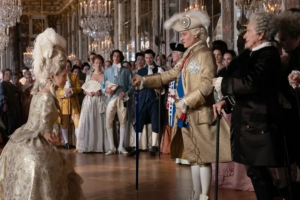Reviewed by GREG KING
Director:James Foley
Stars:Chris O’Donnell, Gene Hackman, Faye Dunaway, Lela Rochon, Robert Prosky, David Marshall Grant, Raymond Barry, Bo Jackson, Josef Sommer, Nicholas Pryor, Harve Presnell, Richard Bradford
Running Time:110 minutes
A far cry from the lightweight drama and largely implausible conspiracy themes of The Pelican Brief, etc, The Chamber is possibly the darkest and most sombre in tone of the five screen adaptations of John Grisham’s popular legal thrillers. It is also more character driven, and this noticeable shift in emphasis is, arguably, due to the input of dual Oscar winning screen writer William Goldman, one of Hollywood’s top script doctors. Essentially, The Chamber is yet another film that raises the ghosts of Mississippi’s shameful recent past steeped in blood, violence and unthinking racial hatred that still impacts on the seemingly more enlightened present. Although the film still manages to tap into many of the same racial and judicial issues explored in the recent A Time To Kill, Goldman and director James Foley (At Close Range, etc) largely explore a number of complex emotional issues rather than dwell at length upon the legal machinations.
Chris O’Donnell makes the most of one of the meatier and emotionally complex roles of his career, and he is very believable as Adam Hall, the idealistic but ultimately naive young lawyer who is unprepared for the complex politics and emotions of the death row debate when he takes on the legal process of seeking clemency for his grand father. Sam Cayhall (Gene Hackman) is a notorious racist and bomber, who accidentally killed two young boys in a bombing incident way back in 1967. Two hung juries initially meant Cayhall went free, but in 1980 he was retried by an ambitious district attorney who finally won a conviction. Ironically, that same prosecutor who secured Cayhall’s conviction fifteen years ago is now the governor of Mississippi and the one man who can decide his fate.
Ultimately though, Cayhall’s death is immaterial as he is merely a convenient pawn in a larger political agenda that will be played out to the bitter end. Adam becomes convinced that Sam was not working alone, but getting at the truth is almost impossible when the unrepentant Sam refuses to co-operate. Foley manages to inject some suspense into the finale, and audiences are kept riveted by the question of whether Adam can pull off a desperate last minute legal miracle and save his grandfather from the gas chamber.
Even Adam is initially unsure of the reasons he has taken on this difficult challenge, but the tragic past of the Cayhall family is dredged to the surface by his relentless attempts to stop the execution. Adam learns how the Cayhall family has been devastated and almost destroyed by Sam’s actions, but the painful catharsis that follows these revelations eventually exorcises the personal pain of three generations. Although fiction, The Chamber explores many similar ideas and issues as the recent Rob Reiner true life drama Ghosts Of Mississippi, and there are a number of parallels between the two films as the tragedy of Mississippi’s racist past is brought home in personal terms.
In his best performance since Unforgiven, Hackman is excellent as the unrepentant killer and brutal bigot, and his performance resonates with anger and pain and he ultimately elicits a small measure of sympathy for this hard and initially unlikeable man. Faye Dunaway (working with Hackman for the first time since the ground breaking Bonnie And Clyde thirty years ago) is superb as the estranged and alcoholic daughter who has changed her name and married into one of Mississippi’s most prominent families in an attempt to distance herself from her own family’s shameful history. A solid supporting cast has been assembled to bring the peripheral characters to life, with Lela Rochon (from Waiting To Exhale, etc) particularly good as the governor’s legal advisor assigned to help Adam, but whose loyalties are uncertain.
The emotive issue of the death penalty and the tortured mental and emotional state of convicted killers awaiting execution on death row has been explored fully in films such as the superb Dead Man Walking and Bruce Beresford’s lesser Last Dance. Ironically, it was these two recent films that finally convinced Ron Howard to back away from directing The Chamber. He decided to merely limit his involvement to producing the film with long time partner Brian Grazer, leaving Foley to step into the director’s chair. Foley does a good job of hitting all the right emotional buttons in the death penalty debate, and he slickly transforms familiar material into a quite suspenseful and ultimately engaging thriller.
★★☆




